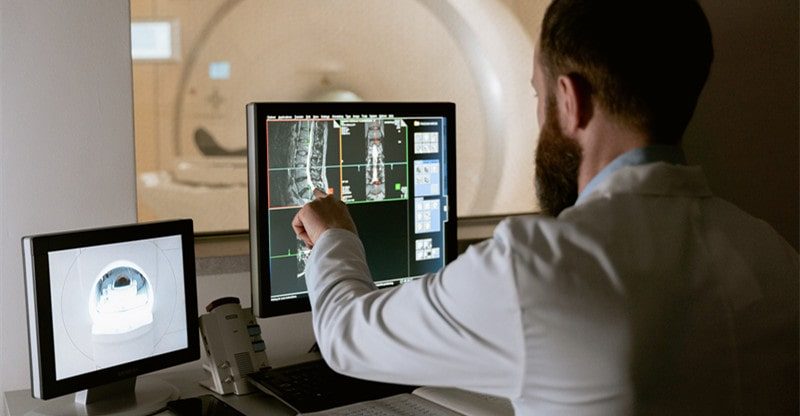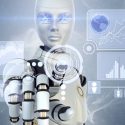How Tech Is Changing What Healthcare Will Be In The Future
Tech transforms just about every industry in a constant cycle of evolution. In healthcare, this means new solutions with life-saving potential. But just as much as technology changes the tools and practices we use now, it alters what the future of healthcare itself will look like.
From robotics to telemedicine, tech trends have healthcare moving down particular growth patterns. As time goes on, we can expect the direction of the industry to shift in these directions. Tech is changing what healthcare will be in the future, and here, you can learn how.
The Impacts of Technology on Modern Healthcare
Modern healthcare is what it is because of technology. As care professionals and technological innovators explored what better care could look like, they discovered applications for artificial intelligence, smart devices, and data analytics tools that could uncover new treatments. Now, these tools power greater possibilities.
Technology has offered modern healthcare three major sectors of development. These are telemedicine, artificial intelligence, and robotic assistants. Through the use of these technologies, the medical field receives all kinds of benefits, which are now reshaping healthcare outcomes across the world.
Greater Accessibility
Innovations in telemedicine had been rolling out for a long time, but it wasn’t until Covid-19 struck that care facilities utilized these tools more fully. Telemedicine allows anyone with a solid internet connection and a smart device to contact a medical professional for a growing number of services.
As telemedicine becomes more prevalent, following and learning about telehealth regulations is essential to establish guidelines and standards to ensure patient safety and privacy. It opens up new possibilities, making it easier for individuals to connect with medical professionals regardless of their location or mobility.
Additionally, smart devices like wearable tech are making healthcare data more accessible. These devices track vitals like heart rate, pre-existing conditions, and emergency contact information. With a medical ID built directly into your smartphone, a first responder in an emergency can access all the essential medical information you need them to have.
Greater accessibility involves the Internet of Medical Things (IoMT), which consists of Wi-Fi-equipped medical applications and devices connecting to healthcare information technology (IT) systems via online computer networks. IoMT promotes seamless machine-to-machine communication.
Examples of IoMT include wearables, vital sign sensors, and infusion pumps connected to analytics dashboards. Aside from greater accessibility, these high-tech medical devices improve patient care delivery and reduce hospitalization workload.
Finally, data storage tech is evolving in the form of decentralized and cryptographically protected blockchains. These databases store information on linked nodes that are extremely difficult to hack. To access a single node, a user needs a set of secure private keys. With medical records on such a database, individuals can maintain their information and seamlessly transfer it between providers.
Smarter Diagnostics
Artificial intelligence is another essential element of modern healthcare technology. Paired with telemedicine, it is even bringing preventative care into the homes of patients cheaply and effectively. This is possible because of the ability of AI to draw conclusions from processing massive data sets in an instant.
AI is at the forefront of medical diagnostic potential. Take Google’s DeepMind system, for example, which is now being used to diagnose over 50 kinds of eye diseases in patients using only 3D scans of the eyes. Compared with the input of trained medical professionals, the AI makes the same recommendations 94% of the time and can provide faster results. With algorithms like this, we can treat conditions faster, meaning improved outcomes.
As AI diagnostic potential improves, we’ll be able to detect all kinds of diseases with only a smartphone camera. There’ll come a time when people can perform scan studies, like dental and lung X-rays, using smart diagnostic apps, sensors, and cameras on mobile devices. This future medical diagnostic advancement is ambitious. But the possibility is very high since AI and other relevant technologies are already in place. It’s just a matter of time, more in-depth research, and tech expertise.
Robotic Precision
Last but not least, robotics have impacted the field of healthcare through their application in surgery. With the help of robotic precision, surgeons are navigating less invasive procedures with greater efficiency.
The Mako robot is one example. It uses AI modeling to train in various orthopedic surgeries and can then assist the surgeon in a variety of functions. Other systems like the da Vinci aid in minimally invasive surgeries to give surgeons greater maneuverability and smoothness.
Surgeons are famously overworked, so any tools that can make their job smoother and simple mean better outcomes for patients. The field of robotics is evolving to help improve these outcomes. Along with it, the healthcare industry is integrating all kinds of AI-powered solutions to bring the corresponding benefits to more people.
How Healthcare is Evolving through Technology
These impactful technologies have elevated healthcare, offering greater benefit to millions of patients around the world. Because of the accessibility of telemedicine tools, the speed of AI-diagnostics, and the precision of robotic assistants, better care is possible. This means more lives are saved.
The industry is recognizing these benefits and producing more innovations along these lines as a result. This will determine the tools the medical field will be using in the future, as these technologies will be the basis for much of the research and development to come. We can expect healthcare to integrate more tech like the following:
• Telemedicine
• Omnipresence
• Mobile apps
• Internet of Medical Things
• Blockchain
• Data collection
• AI
• And so much more…
The potential of healthcare technology to integrate seamlessly with the devices we carry with us and use every day means invaluable benefits for us all. For example, the FDA recently gave the go-ahead on a mobile phone-based heart murmur detection tool. Imagine carrying the means to recognize potential health problems around in your pocket.
Aside from the above technologies, the healthcare sector focuses on developing novelty drugs and therapeutics using state-of-the-art techniques, such as PEGylation. This process involves using polyethylene glycol or PEG products to improve treatment outcomes in gene therapy. PEG product manufacturers deploy advanced equipment and techniques to ensure the highest quality.
In the future, doctors can provide gene therapy and tech treatments to stop the primary cause of a disease, such as cancer, Alzheimer’s, and diabetes. The future of healthcare is bright with the discovery and manufacturing of the most potent products for drugs and therapeutics using state-of-the-art laboratory devices and equipment.
The future of healthcare will be based around this accessible, democratized version of care, in which all patients have the means to track their vitals, own and control their medical data, and communicate seamlessly with their chosen medical professionals. With such accessibility at hand, we can expect better care for everyone.



